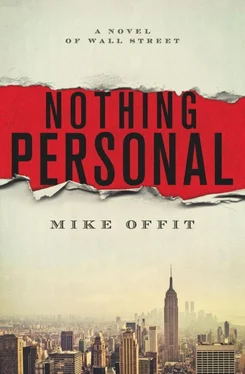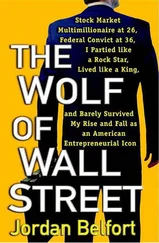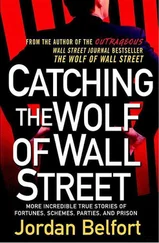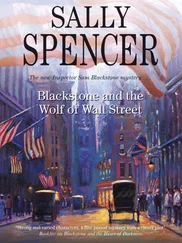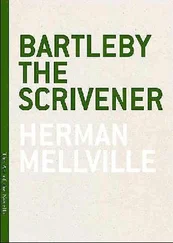Mike Offit
NOTHING PERSONAL
A NOVEL OF WALL STREET
For my wife, my parents, my brother, and my children. Everything good that is in me comes from them.
Dark Harbor, Maine, 1992
From across the bay, he could see the wake before he could make out the boat. It was a Boston Whaler, coming out of Camden harbor with the throttle wide open. Plumes of spray leapt from the bow as it took the top of each wave, catching the low sun in an arc of gold. Warren knew that there would be two people on board, one his employee, the other his wife.
The porch of the main house had a sweeping view of the bay. Perched on a bluff above a cove with a double dock on pilings over the dark, cold water, the house had been the first great “cottage” to go up on Islesboro Island, made for a Scotch-Irish Boston importer who’d kept a seventy-five-foot steam cruiser tied up all summer, only venturing to cross the bay when absolutely necessary. He’d hated sailing and ships, though they’d earned him his fortune, and named the house somewhat sardonically Whales End. In the years after its construction, Dark Harbor, as this part of the island came to be known, became a favored location for large summer houses owned by the Northeastern elite. The wealthy New Yorkers, Philadelphians, and Bostonians would schedule countless sail races in the bay, and the hired crews would create diversions for their daughters and wives while the men donned captain’s hats and lusted after a series of ornate silver cups that sat in a case at the Tarratine Club.
More than any other place, Warren viewed the house as a home because he loved the severe weather, the isolation, and the perfect images that constantly appeared—the sleek patina of the well-oiled teak on the classic Chris-Craft runabout he used for hops around the bay, a small American flag snapping vividly in the breeze at the boat’s stern, in relief against the midnight blue of Penobscot’s choppy surface. It was peaceful here, and the world could, for long moments, seem pure and serene, unchanged from the pristine wilderness known to the Abenaki tribe who had plied these waters for centuries.
The trip that had brought him to this place, along with the woman on the Whaler, had started a long time before, in a landscape dominated not by the shapes of nature or the forces of erosion. That had been a darker vista of glass and steel, bristling with wires and singing the aching and distant tune of money. Perhaps it was the ghosts of those who had died that shimmered for a moment in the mist from the Whaler’s bow and then dissipated on the disturbed surface of the bay. But, whether it was fate that had steered them, or force of will, he knew as he stood here that he had come through, and that, surely, he would never go back.
New York, 1984
Count Lorenzo Corelli certainly didn’t look anything like his name. He was balding and stout, with a jowly face that receded into a weak chin. He dressed more like an old economics professor than an Italian nobleman—understandable, as he actually spent eight months a year teaching microeconomics at Columbia Business School. His students were obligated to sit through Corelli’s tedious examinations of “the dismal science”—today, that meant how bananas would theoretically be priced on an island with no other products and only monkeys as consumers. It was left to the students to figure out how this model might someday be applied to an actual job in the real world. For his part, Corelli rarely tried to enliven the material, having long before decided that, even in so inexact a discipline as his, he would grade generously those who simply recited his lectures on all exams without thinking or dissension. This practice would, he reasoned, prepare them well for life in most of corporate America.
At the front of the amphitheatrical classroom, Corelli sat at his desk, occasionally rising to scribble on the blackboard, while some of his students took notes, others dozed, and a few at the back whispered and giggled. One of the members of this group was Warren Hament, his long brown hair and black jeans distinctly out of step with the pervading aura of a working weekend at IBM headquarters. Hament was twenty-five, about five feet ten inches, with an athletic build and wide, even features, his blue eyes lending his face an intensity that did not match his sardonic, easygoing manner. The remnants of a deep suntan made him appear much healthier than most of the other students, many of them a pale, greenish white in the harsh fluorescent lighting. The only times that Warren seemed to focus on Corelli were during his occasional segues into a disapproving pontification on the economic policies of the new president, and his prediction of a powerful and lasting depression by the end of his first term.
“The so-called Reaganomics solution to the middle and underclasses’ problems,” Corelli was expounding, “is ‘trickle down’—simply to put so much food on the tables of the wealthy that a few crumbs will fall to the floor, where the huddled masses may fight for the scraps.”
“He sounds kind of bitter,” Hament whispered to Eliza Roberts, who sat to his left.
Eliza smiled and brushed back her short, black hair, leaning closer to Warren. “From what I hear, Reagan’s going to sign an executive order deporting all economists to Haiti to work on banana hyperinflation.”
The last provoked a stuttering laugh from Chas Harper, a seat over from Eliza. “Jesus, Eliza, if he did that, there wouldn’t be anybody left in Cambridge.” Harper’s voice held a mixture of Old New York and the Maine Coast, and his white-blond hair, prominent forehead, and ice-blue eyes confirmed the lineage of forty-room cottages and Hobe Sound winters.
“No loss,” Eliza, an MIT graduate, responded, “except that I’d sell my L.L. Bean stock.”
Corelli stopped in midsentence and peered over his glasses at the group in the back of the classroom. “If you three in back have a dissenting opinion, you’ll get every opportunity to express it on the final exam. I might remind you that all three of you may have to delay your careers a few months if you don’t amuse me as much as you evidently amuse yourselves.” Corelli’s scathing tone perked up the front rows, and faces turned to see what response might come from the clique. Warren was one of the few students who dared to disagree with the professor during classes, taking issue with him on economic as well as political points.
“Thank you for pointing that out, Professor Corelli,” Warren responded, not wanting to disappoint the crowd. “Any more delayed careers in this room and we’d be able to start an economics think tank.”
More than a few titters broke out.
Corelli stared at Hament for a moment in indecision and chose to laugh with the joke. His expression betrayed mild annoyance, but he’d usually seemed to enjoy the occasional debate. “Mr. Hament, if we had a department in playing the dozens, I would nominate you for the chair. If you don’t mind, though, I would like to get on with this class.”
“By all means, sir. We are anxious to hear how it all winds up on Monkey Island.”
Corelli heaved an exasperated shrug and went back to his dissection of Reagan’s tax cuts and policies.
After class broke, the small group made its way out to the lobby of Uris Hall. Harper poked Warren on the shoulder. “Hey, Hament, I hear you’re quite the tennis player.” A slight gap-toothed smile crossed Harper’s face.
Читать дальше
